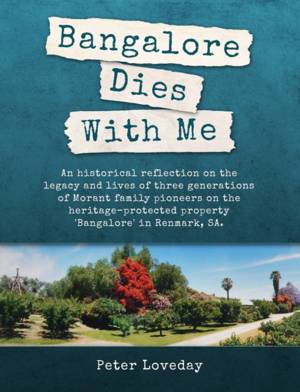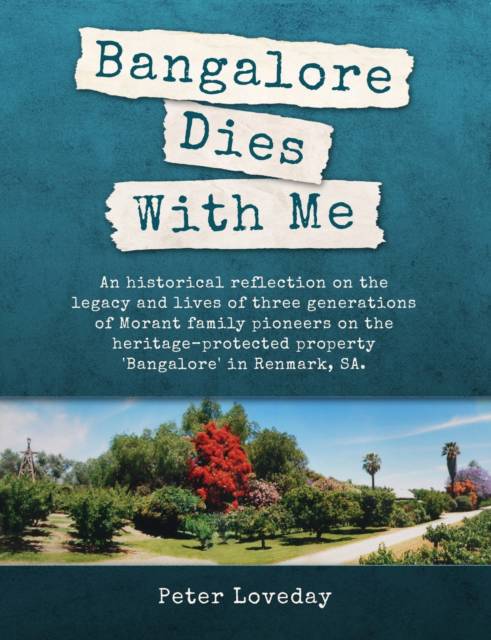
- Retrait gratuit dans votre magasin Club
- 7.000.000 titres dans notre catalogue
- Payer en toute sécurité
- Toujours un magasin près de chez vous
- Retrait gratuit dans votre magasin Club
- 7.000.000 titres dans notre catalogue
- Payer en toute sécurité
- Toujours un magasin près de chez vous
Description
Bangalore Dies With Me is an historical memoir by the great-grandson of 'The Colonel' Charles Morant, one of Australia's agricultural pioneers in South Australia. On 7 December 1891, this British-born gentleman from India with no agricultural training bought 100 acres of South Australian scrub land which became famous locally and internationally as an agricultural wonder in fruit farming and irrigation called "Bangalore".
In 1986, 'Bangalore' was certified as a State Heritage Place in the South Australian Heritage Register. It was also listed on the Register of the National Estate, indicating its Australian-wide significance. Today, the author describes the "gut wrenching" sight of neglect and disrepair after the once-stunning property with its historically-significant buildings and contents were handed over to State Heritage care.
Through the Great Depression, financial crises, both World Wars and the Boer War, three generations of the Morant family ploughed the fields of 'Bangalore'. Its last family custodian was a rarity at the time in fruit block farming: a single, stalwart pioneer of a woman, Miss Beryl Morant, who lived and worked on the property to preserve her father's legacy until her own death in 2007.
It was Miss Morant who etched and initialled this prophetic fear, "Dad's Bangalore will die with me" on a document, that inspired the author to pull together the historically-significant photos, media archives and first-hand accounts to create his first published book, Bangalore Dies With Me.
The book beautifully and factually captures the hard-won battles of life on the land, and honours the labour, love and loss of the Morant family and its descendants in an effort to preserve their memory for generations to come. Anyone who reads it shares in an important part of Australian agricultural history.
Spécifications
Parties prenantes
- Auteur(s) :
- Editeur:
Contenu
- Nombre de pages :
- 230
- Langue:
- Anglais
Caractéristiques
- EAN:
- 9780646831497
- Date de parution :
- 24-02-21
- Format:
- Livre broché
- Format numérique:
- Trade paperback (VS)
- Dimensions :
- 189 mm x 246 mm
- Poids :
- 557 g







